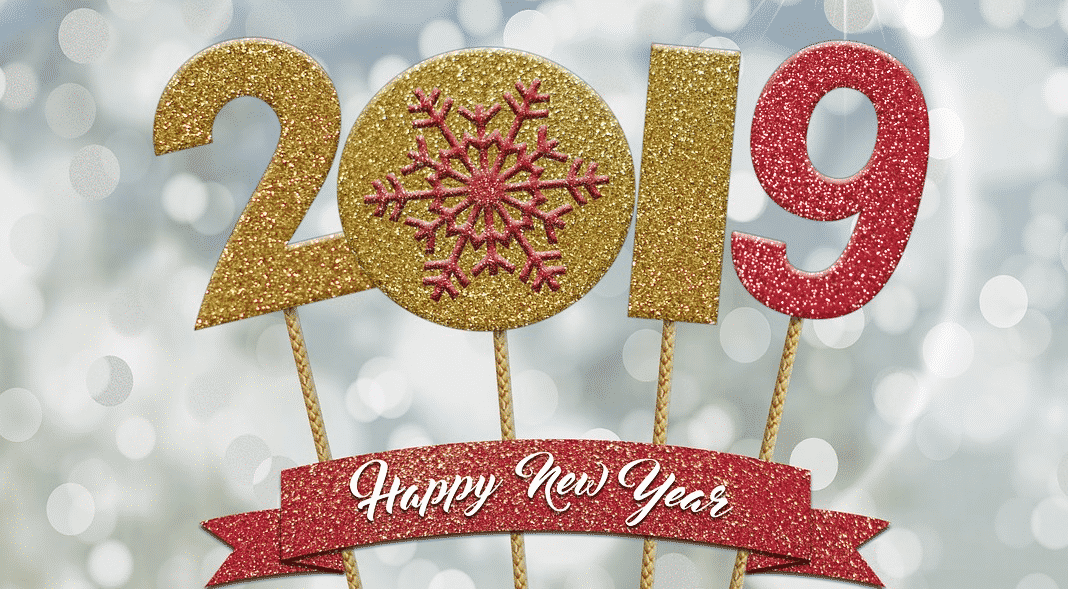5 Copyright Stories to Watch in 2019
Expect fireworks in 2019...
2019 may only be a few days old but it is already shaping up to be a banner year for copyright.
Already we’re seeing stories about the public domain expanding for the first time in the United States in 20 years and at least two Supreme Court cases that could have significant impacts on when and how rightsholders are able to sue for copyright infringement.
Couple that with the prospect of some copyright legislation and some other ongoing cases that could mean significant changes to copyright law, there are a lot of big stories set to go down in 2019.
So, without further ado, here’s a look at five copyright stories that you should watch in 2019.
1: Supreme Court Tackles The Registration Requirement

In the United States, a creator or rightsholder must first register their work with the U.S. Copyright Office before filing a lawsuit. This is a unique requirement to the United States that has caused a great deal of controversy, especially as new rules make it practically impossible for internet-based creators to register all of their work.
But, while the Supreme Court won’t be tackling the requirement itself, it will be looking at one of the thornier issues around it: What counts as registration?
The problem is that the U.S. Copyright Office is way behind on registrations. File a registration today and you can expect to wait at least six months for your certificate. Some (rare) claims can take as long as 3 years.
Given that the statute of limitations on copyright infringement is just two three years, some circuit courts have allowed creators to file a lawsuit with just a filed claim. Others, however, have required that the registration be completed (or rejected).
The case Fourth Estate Public Benefit Corp. v. Wall-Street.com, LLC aims to resolve that split. The facts of the case are fairly mundane. Fourth Estate produced content it licensed to Wall-Street.com, but it accuses Wall-Street.com of using the content after the license expired. However, issues over the registration of the material at hand have brought the case to the Supreme Court, where the question is “What counts as registration?”
Oral arguments in the case are being heard today with a decision on it expected later this year. That decision will have major impacts on when and how rightsholders can sue for infringement.
2: Supreme Court Tackles Attorneys Fees

The Rimini Street v. Oracle case is, for the most part, over. Rimini Street, a company that provides support and services for Oracle Software (competing with Oracle itself in that area) was successfully sued for various infringing activities and currently owes approximately $124 million in damages.
However, as the court can do under copyright law, it awarded Oracle attorneys fees and costs in the case. Of the costs awarded, approximately $12 million were non-taxable costs including expert fees, consultant fees and more.
The problem is that, in most areas of the law, a court cannot award non-taxable costs. Normally, there are restrictions on what the court can and cannot award in terms costs but the copyright act simply states that courts can award the full costs.
The circuit courts are split on whether non-taxable costs can be awarded in a copyright case and that’s why the Supreme Court is taking the case.
While it may seem to be a minor issue, many creators and rightsholders reply upon the awarding of legal costs to make copyright litigation practical. If there is a significant shift in the types of fees that can be awarded, it also means a shift in the kinds of cases that are practical to file.
3: The Expanding Public Domain

We already talked at length about how the public domain in the United States is expanding for the first time in 20 years. Though the first crop of works to be introduced is something of a weak one, there are a lot of important works on the horizon.
But that doesn’t mean that there won’t be public domain issues to watch in 2019.
First, we have how the new works that lapsed into the public domain will be used. Though there wasn’t much in the way of famous works that lapsed this year, there are some that are still commercially viable and we might get a peek into how they are exploited and what the response from (former) rightsholders is.
Second, we’re also likely going to see how rightsholders, including Disney, are going to start preparing for their works to lapse in coming years.
The public domain and its impact on existing creators is going to be a major issue over the next few years. 2019 is going to be the first taste of what could be a wild few years.
4: Copyright Small Claims Court
The copyright small claims court issue was a largely quiet one in 2018. The “Copyright Alternative in Small-Claims Enforcement Act” was proposed in 2017 and didn’t really go much of anywhere.
However, there’s been a great deal of build up on on this issue over the years including a report by the U.S. Copyright Office in 2013. This issue has been simmering for a very long time and isn’t likely to go away any time soon.
With a new Congress, including a Democrat-led House, this could easily be an issue to watch, especially since it’s a fairly bipartisan issue at a time where the two sides don’t seem to agree on much.
While there’s no rumblings currently, it seems likely that we’ll hear something about a copyright small claims court in 2019.
5: The Music Wars
Ed Sheeran, LMFAO, Led Zeppelin and Kraftwerk are just four of the acts currently involved in music-related lawsuits. Whether they are the plaintiff and the defendant, whether it’s over sampling or song theft itself, they are all breaking new ground in this area.
Though the Blurred Lines case, which finally came to a close late last year, was significantly dependent on facts specific to it, there’s not much doubt that its emboldened other plaintiffs.
That fallout is going to be evident in 2019 as many of these cases, some of which have already been going on for years, are going to reach their own conclusions.
And this says nothing about the licensing and other fallout still coming from the signing into law of the Music Modernization Act late last year. The U.S. Copyright Office is readying itself for its roles in the law and we will start to feel its impacts this year.
Music is almost always one of the more interesting areas of copyright but this year is going to be an even bigger year than normal.
Bottom Line
While every year has its share of major copyright stories, 2019 is coming out of the gate with two definite ones and several probable ones that could drastically alter the landscape.
One thing is clear, it’s going to be a major year for copyright news and we are going to have a lot to talk about as the next 12 months unfold in front of us.
Stay tuned, there’s a lot more to come!
Want to Reuse or Republish this Content?
If you want to feature this article in your site, classroom or elsewhere, just let us know! We usually grant permission within 24 hours.
